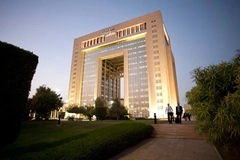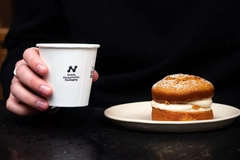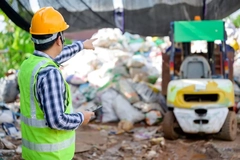Jeplan and Sojitz combine to establish PET bottle chemical recycling business in Japan

24 Mar 2021 --- Japan-based recycling company Jeplan is joining the Sojitz Corporation to establish a PET bottle chemical recycling business in Japan. The collaboration will utilize Jeplan’s proprietary chemical recycling technology, Bring.
As part of the joint venture, Jeplan has issued a third-party allotment of new shares underwritten by Sojitz. Additionally, Sojitz has agreed to acquire a 25 percent stake in PET Refine Technology (PRT), a subsidiary of Jeplan, and to operate the company jointly.
Japan has one of the highest PET bottle recovery rates globally. Approximately 85 percent of the 25 billion PET bottles sold in 2018 were recovered and recycled as writing pads, weed control sheets, detergent bottles and apparel products, says the company.
However, safety and health considerations make it extremely difficult to perform horizontal bottle-to-bottle recycling for beverages, meaning it is extremely rare, says Jeplan. The company aims to make this more possible through collaboration.
Virgin-quality feedstock
Bring recycling is part of a wider initiative launched by Jeplan for recycling clothes and other materials in Japan.
Using Bring, Jeplan can selectively extract the intermediate BHET (Bis(2-Hydroxyethyl) terephthalate) from PET, the material used to make PET bottles and polyester fabric.
.jpeg) Jeplan will begin recycling the billions of PET bottles recovered in Japan each year.The company can then recover high-purity monomers to manufacture recycled PET (rPET) resin that meets strict bottle-grade quality standards at an industrial scale.
Jeplan will begin recycling the billions of PET bottles recovered in Japan each year.The company can then recover high-purity monomers to manufacture recycled PET (rPET) resin that meets strict bottle-grade quality standards at an industrial scale.
The major benefit of this technology is that impurities can be removed via a chemical process, so the material quality does not deteriorate even after repeated recycling, and rPET resin can be produced with a quality equivalent to virgin PET resin derived from petrochemicals.
In addition, the process allows for the complete recirculation of resource materials. PRT has a proven commercial track record for bottle-to-bottle recycling through chemical processes.
The company is undergoing equipment upgrade work in preparation for its factory’s restart in the summer of this year. Following the restart, the company will be on track to produce around 22,000 metric tons of rPET resin per year.
Chemical recycling
Using Jeplan’s technology and Sojitz’s global customer network spanning multiple regions and industries, the collaboration will promote the expansion of the chemical recycling business in Japan and overseas. This will include the establishment of a system to collect used PET products for use as raw material and the construction of new production facilities.
In addition, the companies will work to realize Jeplan’s corporate vision to “Bring everyone into a circular economy” and Sojitz’s corporate statement to “create value and prosperity” as they seek the development and expansion of environmentally friendly resource recirculation and the attainment of a prosperous and sustainable decarbonized society.
Last year, Greenpeace USA warned that many American Chemistry Council approved “chemical” or “advanced” recycling projects are unviable or misleadingly promoted as recycling when they mainly produce fuels and waxes.
The “Deception by the Numbers” report examined 52 US chemical or advanced recycling projects.
The report concludes that “chemical recycling is not a solution to the plastic pollution crisis, but rather a bait-and-switch PR tactic meant to create the illusion of industry progress.”
Edited
By Louis Gore-Langton










